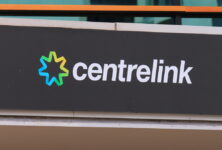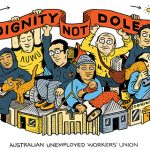Paltry ‘JobSeeker Raise’ Will Not Increase Employment or Help the Economy

Earlier this week, Prime Minister Scott Morrison did what many Australians have been wanting him to do for some time – announce a permanent raise in the rate for the JobSeeker allowance.
The bad news is that Jobseeker (formerly Newstart, or ‘the dole’) has only been raised by a mere $3.57 per day, and still sits at less than half of the average national minimum wage, and therefore, well below the poverty line.
Tightened eligibility requirements
On top of the meagre increase, the government has also tightened up eligibility requirements and put in place tighter ‘mutual obligations’ – these are the tasks people need to undertake in order to obtain welfare payments, including:
- There will be a requirement for JobSeekers to attend face-to-face appointments with their providers.
- The number of job searches a JobSeeker is obliged to conduct per month will also increase to 15 – up from eight during the pandemic. As of July 1, that will increase again to 20 searches per month, as was required pre-pandemic.
- After six months of being on welfare, people will be required to undertake training, such as a short course to enhance their skills, or do work experience.
Employer ‘dob in’ hotline
The Government will also create an employer reporting line for employers to ‘dob in’ anyone who is offered a job they are qualified for, but turns it down. If an investigation finds that someone turned down suitable employment, then they can be found ‘in breach.’
Despite being hailed as “the single biggest increase in unemployment benefits since 1986”, if the Morrison Government was hoping to score some political points or a popularity boost from the raised JobSeeker rate, it will be sorely disappointed.
The reaction from several advocacy groups has been highly critical, calling the $25 per week increase ‘heartless’ an “appalling decision” and ‘unspeakably cruel,’ particularly in light of the fact that during the pandemic, the payment was higher, which actually enabled those who try to make ends meet on the benefit, a little bit extra to be able to eat properly and pay bills.
The Prime Minister says the raise is ‘adequate’ – yet another classic example of the ‘bubble of privilege’ that our Federal Politicians live in.
For the past few years as campaigners ramped up their efforts to have the JobSeeker allowance raised to a decent ‘live-able’ level, horrific stories have emerged of people relying on the stipend not being able to afford basic necessities, like regular meals and electricity, medication.
For some it has meant not being able to afford a roof over their head, so they live in their cars, or on the streets. Charities and other social welfare organisations have been overwhelmed by the growing number of people needing extra support like emergency accommodation and food parcels, especially during COVID-19 when both jobs and generous donations dried up.
Social security recipients aren’t there by choice
But, as all Employment Minister Michaelia Cash explains, “this is about getting people off welfare and into work,” entirely sidestepping the issue of current high unemployment rates post-pandemic as well as the fact that many people who are on social security aren’t there by choice.
For far too many years, Australia has perpetuated the stereotype that people who receive the ‘dole’ are ‘bludgers’, but this is certainly not the case in the real world, especially one in which thousands of businesses have closed down due to the impact of COVID.
On top of this, many people in receipt of social security have mental health issues, or chronic physical health issues, learning difficulties, as well as issues with developing the appropriate communication and social skills that are required for full time employment.
Others are engaged in meaningful work, such as caring for others, or volunteering. Still others simply need a stop-gap between jobs.
Unfortunately, rather than offer decent social support to people when they need it the most, the successive
Australian governments have developed a system so lacking in investment that it sets people up to fail, and catapults many people into desperate hardship and poverty, which in the long run costs much more on the economic balance sheet.
Poverty is linked with long-term stress, depression, suicide, homelessness, inadequate nutrition and food insecurity, inadequate child care, lack of access to health care, and also a lack of education for children.
It’s been well documented that socioeconomic disadvantage leads to crime too.
And many are of the view that failing to adequately raise the rate will make it far more difficult for people to put themselves in a position where they are able to get a job. It will be harder for them to undertake further study or occupational training, as they struggle to get by on a day to day basis.
The economy may well suffer too, with a rate rise leading to recipients pumping more money into businesses that are struggling to stay afloat.
While the new JobKeeper proposal has yet to be ratified in Parliament, it is expected to be rolled out on April 1st. Unfortunately, it’s not an April Fool’s day joke.








